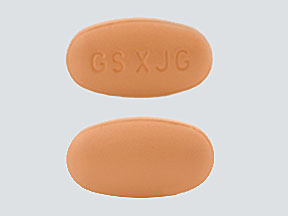Tykerb Side Effects
Generic name: lapatinib
Medically reviewed by Drugs.com. Last updated on Jun 22, 2023.
Note: This document contains side effect information about lapatinib. Some dosage forms listed on this page may not apply to the brand name Tykerb.
Applies to lapatinib: oral tablet.
Warning
Oral route (Tablet)
Hepatotoxicity, which may be fatal or severe, has been observed in clinical trials and postmarketing experience. Causality of the deaths is uncertain.
Serious side effects of Tykerb
Along with its needed effects, lapatinib (the active ingredient contained in Tykerb) may cause some unwanted effects. Although not all of these side effects may occur, if they do occur they may need medical attention.
Check with your doctor immediately if any of the following side effects occur while taking lapatinib:
More common
- Cough
- diarrhea
- difficult or labored breathing
- itching, skin rash
- loosening of the fingernails
- nosebleed
- redness or soreness around the fingernails
- redness, swelling, or pain of the skin
- scaling of the skin on the hands and feet
- tightness in the chest
- tingling of the hands and feet ulceration of the skin
- unusual tiredness or weakness
Rare
- Chest pain
- decreased urine output
- dilated neck veins
- extreme tiredness or weakness
- irregular breathing
- irregular heartbeat
- swelling of the face, fingers, feet, or lower legs
- weight gain
Incidence not known
- Blistering, peeling, or loosening of the skin
- chest discomfort
- chills
- clay-colored stools
- dark urine
- decreased appetite
- difficulty with swallowing
- dizziness
- fainting
- fast heartbeat
- fever
- headache
- hives
- irregular or slow heart rate
- loss of appetite
- nausea
- puffiness or swelling of the eyelids or around the eyes, face, lips, or tongue
- red skin lesions, often with a purple center
- red, irritated eyes
- sore throat
- sores, ulcers, or white spots in the mouth or on the lips
- stomach pain or tenderness
- swelling of the feet or lower legs
- vomiting
- yellow eyes or skin
Other side effects of Tykerb
Some side effects of lapatinib may occur that usually do not need medical attention. These side effects may go away during treatment as your body adjusts to the medicine. Also, your health care professional may be able to tell you about ways to prevent or reduce some of these side effects.
Check with your health care professional if any of the following side effects continue or are bothersome or if you have any questions about them:
More common
- Back pain
- belching
- cracked lips
- diarrhea (mild)
- difficulty in moving
- discoloration of the fingernails or toenails
- dry skin
- heartburn
- indigestion
- lack or loss of strength
- muscle pain or stiffness
- pain in the arms or legs
- stomach discomfort or upset
- swelling or inflammation of the mouth
- thinning of hair or hair loss
- trouble sleeping
For Healthcare Professionals
Applies to lapatinib: oral tablet.
Gastrointestinal
Very common (10% or more): Diarrhea (77%), nausea (44%), vomiting (26%), stomatitis (14%), dyspepsia (11%), constipation, abdominal pain[Ref]
Hematologic
Very common (10% or more): Neutropenia (77%), hemoglobin lab abnormality (56%), leukopenia (53%), anemia (23%), neutrophils lab abnormality (22%), platelets lab abnormality (18%), decreased hemoglobin (10%)[Ref]
Dermatologic
Very common (10% or more): Rash (including dermatitis acneiform, 59%), Palmar-plantar erythrodysesthesia (53%), alopecia (13%), dry skin (13%), pruritus (12%), nail disorders (including paronychia, 11%)
Frequency not reported: Serious cutaneous reactions[Ref]
Hepatic
Very common (10% or more): AST lab abnormality (53%), ALT lab abnormality (46%), total bilirubin lab abnormality (45%), increased ALT (11%), hyperbilirubinemia
Common (1% to 10%): Hepatotoxicity[Ref]
Metabolic
Very common (10% or more): Decreased appetite (32%), anorexia (11%)[Ref]
Other
Very common (10% or more): Fatigue (22%), mucosal inflammation (15%), asthenia[Ref]
Musculoskeletal
Very common (10% or more): Myalgia (14%), pain in extremity (12%), back pain (11%), arthralgia[Ref]
Respiratory
Very common (10% or more): Dyspnea (12%), cough (10%), epistaxis
Uncommon (0.1% to 1%): Interstitial lung disease/pneumonitis[Ref]
Psychiatric
Very common (10% or more): Insomnia (10%)[Ref]
Cardiovascular
Very common (10% or more): Hot flush
Common (1% to 10%): Decreased left ventricular ejection fraction[Ref]
Nervous system
Very common (10% or more): Peripheral neuropathy
Common (1% to 10%): Headache[Ref]
Hypersensitivity
Rare (less than 0.1%): Hypersensitivity reactions (including anaphylaxis)[Ref]
Frequently asked questions
More about Tykerb (lapatinib)
- Check interactions
- Compare alternatives
- Pricing & coupons
- Drug images
- Dosage information
- Patient tips
- During pregnancy
- Generic availability
- FDA approval history
- Drug class: EGFR inhibitors
- Breastfeeding
- En español
Patient resources
Professional resources
Related treatment guides
References
1. Cerner Multum, Inc. UK Summary of Product Characteristics.
2. Product Information. Tykerb (lapatinib). Novartis Pharmaceuticals. 2007.
3. Cerner Multum, Inc. Australian Product Information.
Further information
Always consult your healthcare provider to ensure the information displayed on this page applies to your personal circumstances.
Some side effects may not be reported. You may report them to the FDA.

